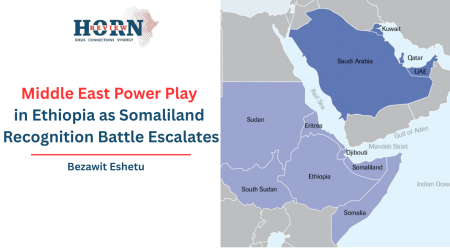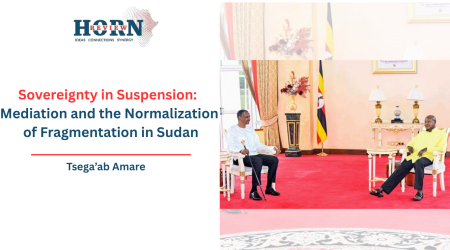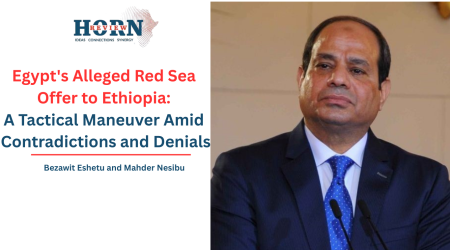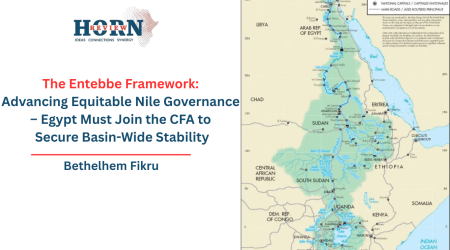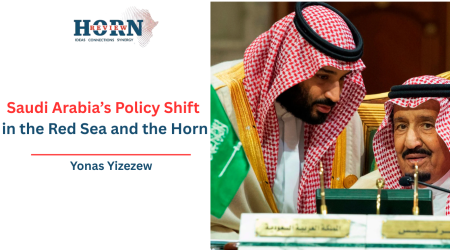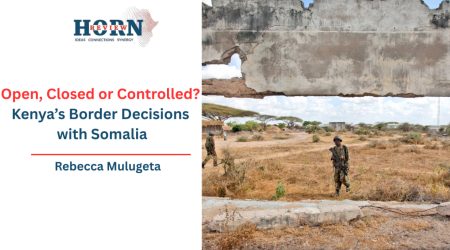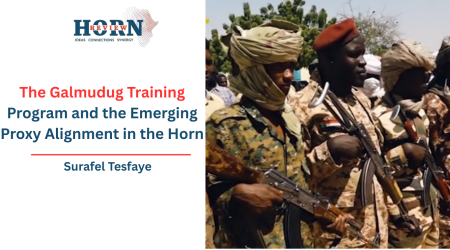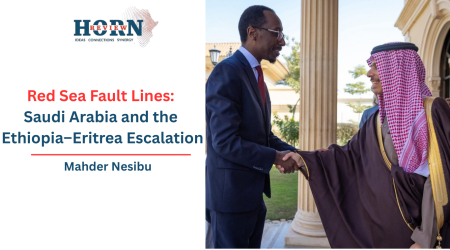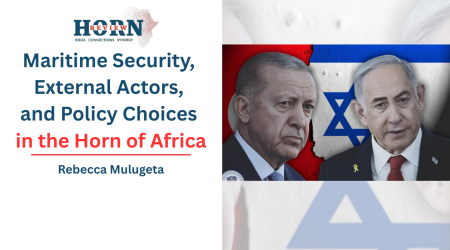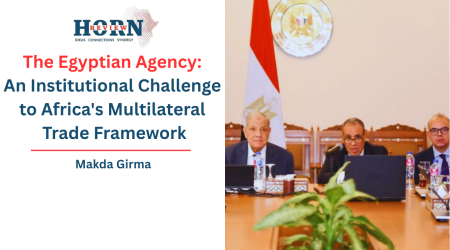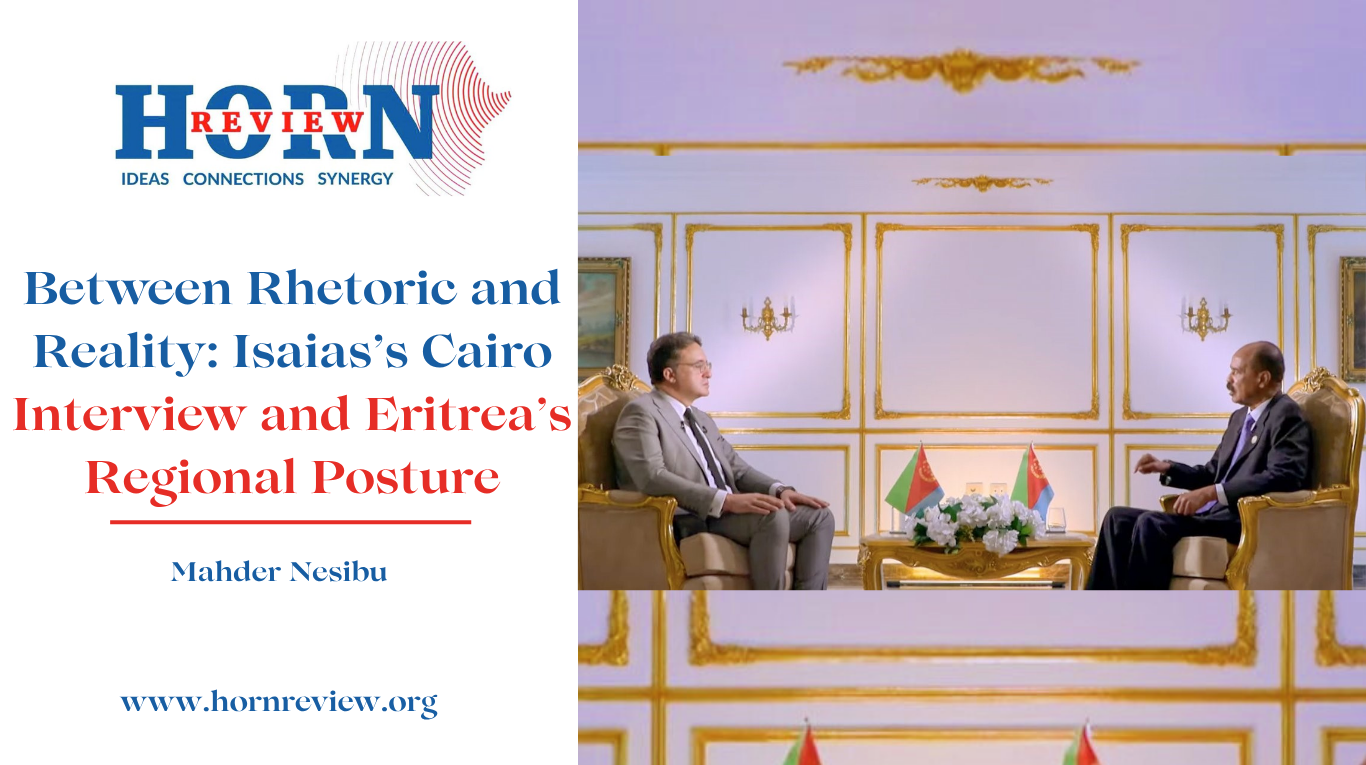
5
Nov
Between Rhetoric and Reality: Isaias’s Cairo Interview and Eritrea’s Regional Posture
President Isaias Afwerki’s recent visit to Cairo for the inauguration of the Grand Egyptian Museum and his subsequent interview offer a revealing lens on Eritrea’s current strategic posture. Publicly, the trip was presented as a routine high-level diplomatic engagement designed to reaffirm bilateral ties, strengthen regional cooperation, and signal continuity in Eritrea-Egypt relations, yet when placed in the context of broader regional developments, it reveals a pattern of reactive alignment and selective partnership. The timing of the visit, immediately following Ethiopia’s prime minister delivering a comprehensive address to parliament on the subject of Ethiopia-Eritrea relations, suggests that Asmara’s engagement in Cairo responded to developments in Addis Ababa rather than originating as an initiative to consolidate neighbourhood cooperation. This reactive dimension, combined with Eritrea’s preference for Egypt as a strategic partner, is a testament to its policy that counters Ethiopia’s ambitions, particularly in the Red Sea and Nile domains, rather than to foster balanced regional integration.
Isaias’s interview emphasizes the need for regional states to assume responsibility for security and stability, to minimize foreign interference, and to exercise local ownership in resolving crises, yet this rhetoric contrasts sharply with Eritrea’s actual engagement with regional institutions and mechanisms. While he portrays external intervention as the primary source of instability, Eritrea continues to act largely unilaterally or in selective partnership with non-Horn powers, enabling Egypt, which is not a Horn of Africa state, to extend its influence. Cairo’s strategic interest is explicit: to weaken Ethiopia and constrain its agenda on the Red Sea and Nile, and Isaias demonstrates full awareness of this objective while seeking to court Egyptian support in advancing Eritrea’s anti-Ethiopia positioning. In this light, Eritrea’s facilitation of Egyptian involvement undermines the credibility of its stated opposition to external interference, as it simultaneously resists multilateral integration with immediate neighbours while embracing an external power whose aims align with its own tactical calculation against Addis Ababa.
The interview also addresses foreign military presence, warning that external bases exacerbate regional instability, yet the pattern of Eritrea’s alignment with Egypt appears to contradict this principle. Egyptian forces are reportedly preparing to deploy in Somalia, and Eritrea’s strategic endorsement of the alliance contributes to the conditions for external militarization in a state already grappling with fragility, governance deficits, and local insurgencies. The result is a tension between Isaias’s stated vision of collective responsibility and the practical consequences of Eritrea’s policies, which facilitate the presence of an outside power whose primary interest lies in countering Ethiopia rather than supporting Somali-led stability. By aligning with Egypt, Eritrea positions itself as a tactical partner in a larger contest rather than a stabilizing actor in its immediate neighbourhood, and this choice reshapes the regional security landscape in ways that challenge the very principles it publicly champions.
Isaias repeatedly frames regional duty as a collective responsibility, stressing cooperation among Horn states, local stewardship, and shared accountability for stability, yet Eritrea’s selective partnerships contradict these principles. The choice to prioritize Egypt over proximate states such as Ethiopia indicate a deliberate strategy to anchor Eritrea within a broader regional alignment that advances its own interests while side-lining immediate neighbours. This policy has tangible consequences: the Red Sea remains contested, the Horn remains fragmented, and Eritrea’s engagement in regional security remains peripheral despite rhetoric emphasizing responsibility and local ownership. By seeking deeper alignment with Egypt, Isaias enhances his leverage against Ethiopia and signals Eritrea’s willingness to accommodate the interests of a partner whose objectives are primarily external to the Horn of Africa. The interview, therefore, offers insight into Eritrea’s diplomatic calculus, revealing a preference for alliances that advance its strategic goals rather than multilateral integration that promotes regional coherence.
The discussion in the interview also exposes further contradictions in Eritrea’s approach to regional security and governance. Isaias’s emphasis on collective duty and sovereignty is not accompanied by a reflection on domestic governance deficits, including indefinite national service, minimal political openness, and constrained institutional capacity. His commentary on the Nile and Red Sea zones highlights the strategic importance of these corridors, yet Eritrea’s alignment with Egypt positions it in service to a state seeking to constrain Ethiopia rather than in pursuit of neutral stewardship of the region. The 2018 rapprochement between Eritrea and Ethiopia presented an opportunity to consolidate regional integration, yet Isaias’s subsequent distancing and turn to Egypt undermined potential transformative outcomes. Similarly, his critique of the African Union’s limited effectiveness overlooks Eritrea’s own minimal engagement with continental mechanisms, leaving the country’s claim to principled leadership in regional affairs exposed as aspirational rather than operational.
Through these patterns, Isaias’s interview reveals a broader approach to diplomacy and security in the Horn of Africa that emphasizes selective alignment over collaborative integration. Eritrea’s posture combines principled rhetoric with a calculated strategy of positioning against Ethiopia through partnership with Egypt, which is actively seeking to limit Addis Ababa’s influence. The deepening alignment with Cairo signals Eritrea’s willingness to serve as a tactical counterweight to Ethiopia while projecting an image of principled opposition to foreign interference and advocacy for regional responsibility. The effect of this strategy is to maintain Eritrea’s leverage while constraining the development of genuinely integrated regional security frameworks that might address collective challenges more effectively.
The interview and the Cairo visit together underscore the limits of Eritrea’s current approach. While Isaias articulates a vision of local ownership and collective duty, the execution of policy privileges selective external alignment over immediate neighbourhood cooperation. The endorsement of the presence of foreign forces in Somalia, the sidestepping of Ethiopian engagement, and the implicit embrace of Egypt’s anti-Ethiopia agenda illustrate a pattern of action that prioritizes tactical positioning above regional institutional coherence. Eritrea’s conduct, therefore, offers a case study in the tension between declarative principles and strategic practice, revealing how the pursuit of leverage and alignment with external patrons can simultaneously serve domestic and regional objectives while limiting prospects for collective stability.
By Mahder Nesibu, Researcher, Horn Review
Reference
Interview with President Isaias Afwerki, originally conducted in Arabic on Egyptian Television and published on YouTube under the title “لقاء خاص مع الرئيس الإريتري أسياس أفورقي | قناة مصر الأولى” (“Special Interview with President Isaias Afwerki | Egypt Channel One”), October 2025. Available at: https://youtu.be/cumv1UfOvpY?si=b8OBXydg7ir-w5De

